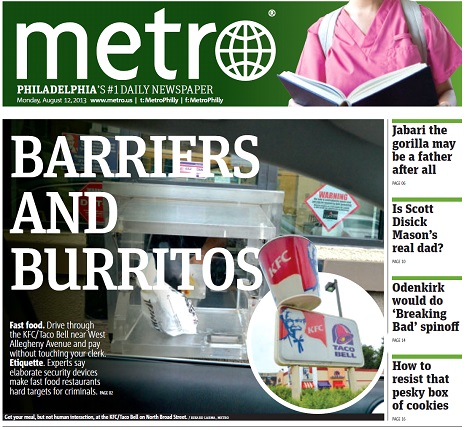http://www.azcentral.com/story/opinion/op-ed/2016/07/13/mass-shooting-solutions/86754248/
My Turn: Too often, lawmakers turn their attention to solutions that won't work. Here are a few that will.
In December 2012, my op-ed was published offering effective responses that can be taken by lawmakers and leaders to address the Sandy Hook massacre, in conjunction with writing my elected officials to plead for common-sense solutions to violent crime.
Now, three-and-a-half years later, I find myself writing again in response to the incidents at San Bernardino and Orlando and thousands who are victimized senselessly on the streets of America’s cities every year.
EDITORIAL: Orlando will test our courage
As an expert in law enforcement and security, I am wrought with disappointment and disbelief at how quickly a massacre like the Orlando attack can be politicized by the media and lawmakers.
Why banning firearms won't work
The argument predictably shifted from the search for answers in the attack to the tools used in the attack. Why? It’s politically a lot easier to blame the weapons used in the attack than to delve into the murky waters of the current psyche of our nation, why these incidents are on the rise, and what we can do to prevent future incidents.
An astute observation to make is: Despite all the talking heads, why has the majority of our nation’s law enforcement stayed off the issue of the weapon used, and on the issue of the assailants in question?
ALLHANDS: The lunacy of an assault-weapons ban
One reason is because law-enforcement professionals know that an operable, maintained firearm could work for over 100 years, and there are approximately more than 300 million firearms owned in the United States. Regardless, our legislators hurried to draft a bill to regulate a few specific types of weapons, which would have little effect on the underlying issue of the few dangerous people seeking to use these weapons unlawfully.
Therefore, one should ask political leaders if there are more effective ways to address this vital issue to our security.
5 solutions that'll actually work
I want to offer some ways our legislators can address mass violence and invest in effective strategies for security, law enforcement and mental-health treatment, including:
- Refine legislation that actually improves the myriad existing, effective laws, which include a requirement for background checks for personal transfers (which could be as easy as the parties of a personal sale going to a gun store or police station to show identification when privately selling a firearm) and immediate legislation for public-safety modifications to health-privacy laws (HIPAA). The HIPAA revision should fund the creation of a state mental-health treatment database, to tie mandatory notifications from mental-health professionals to law enforcement when someone is undergoing treatment for potentially dangerous conditions (to include outpatient treatment when pharmacological intervention is required), who can cross-check files with firearms registration (and requests to buy new weapons).
- Immediately increase funding for the enforcement of existing laws, which includes recruitment and support for the Bureau of Alcohol, Tobacco, Firearms and Explosives and its task forces, to better target interstate smuggling and straw-purchasing of illegal firearms; and providing timely enforcement when a prohibited person is seeking a firearm. This can also accompany federal support for state firearms enforcement and heightened sentences for other crimes where a firearm was used or recovered, similar to "Face 5" in Georgia or "Project Exile" in Virginia.
- Legislate professional standards for security and law-enforcement officers specializing in critical infrastructure protection, as America needs to accept the need for professionally trained and equipped staff on-site to intervene if an incident occurs.
- Require training in the safe handling, retention and use of a firearm for any civilian owner, similar to qualifications that security officers must complete, as well as laws addressing the securing of firearms at home, to prevent theft or access by prohibited persons.
- Fund training for workplaces and schools in recognizing and reporting abnormal behavior, and fund an early-intervention tip line coordinated with local law enforcement.
Although these solutions are less "popular" in addressing the threat of mass-violence, I hope that my elected officials can begin a meaningful, non-partisan discussion with an impact on violent crime. Offering popular legislation that does not pass is the equivalent of "kicking of the can down the road," but if we are to work together to address the causes versus the tools used, we may be able to save lives.
A. Benjamin Mannes serves as governor on the executive board of InfraGard, the FBI-coordinated public-private partnership for critical infrastructure protection, and is a member of the Peirce College criminal justice studies advisory board. Email him at bmannes@philadelphiainfragard.org; Twitter, @PublicSafetySME.


